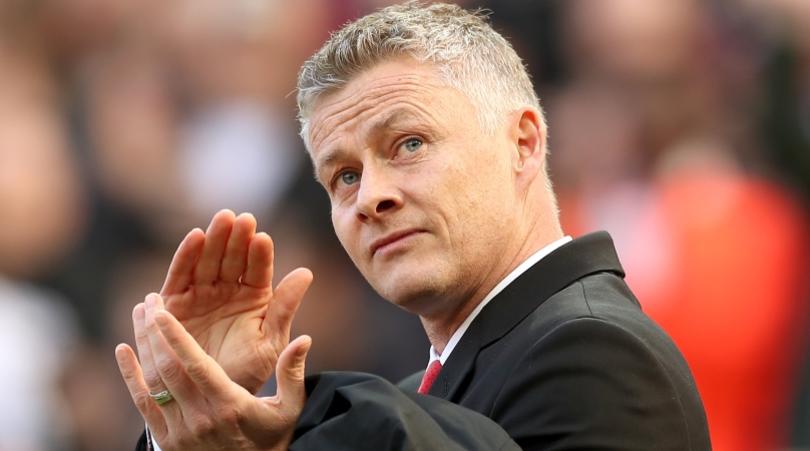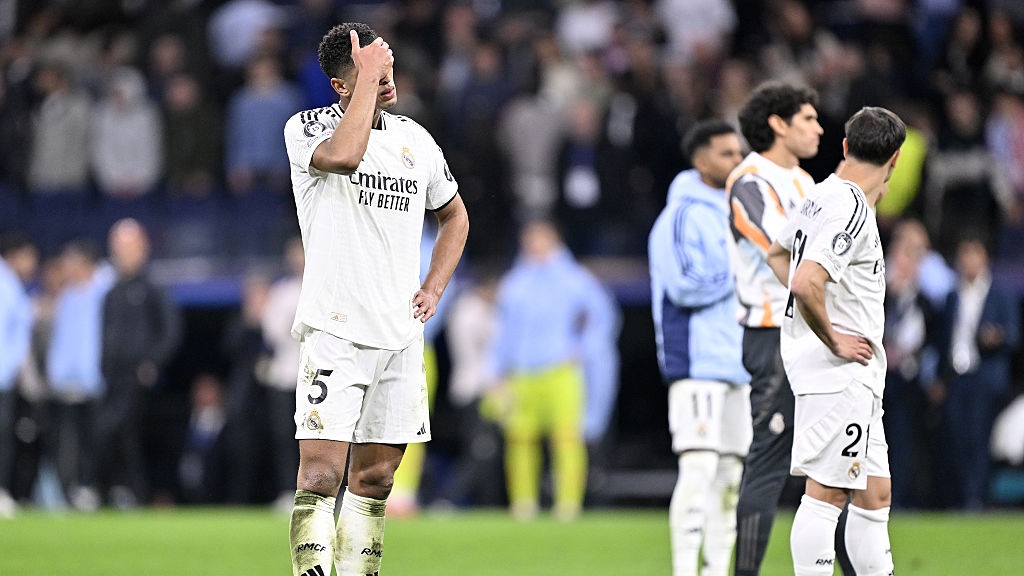What's Ole Gunnar Solskjaer REALLY like? When FourFourTwo met the baby-faced assassin...
From his in-depth interview with the new Manchester United manager, FFT's Chris Flanagan reveals Solskjaer’s personal qualities, his secret hard edge – and the notebook he’s kept since he was a player at Old Trafford to prepare for the role…
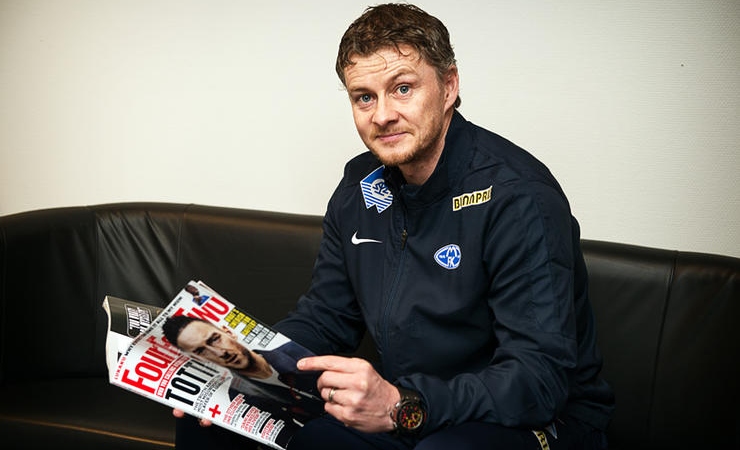
"I can never stray away from the way I want my teams to play football – with creativity and imagination, just as I learned under Sir Alex Ferguson. Is United still the dream job for me? Every Manchester United player who goes into management has that ultimate dream."
These were the words of Ole Gunnar Solskjaer when I met him in Molde for FourFourTwo three years ago. It seemed unlikely that dream would ever be realised back then: Solskjaer had returned to Norway after an unsuccessful spell in charge of Cardiff City. In the English media, he was no longer regarded as a manager on the way up.
But there was something hugely impressive about Solskjaer that day I met him at Molde's Aker Stadion. I spent more than an hour with Solskjaer that afternoon, and it's still one of the most enjoyable interviews I've ever done, mainly because he was one of the friendliest interviewees I've ever met.
Often when you meet big names, it's the interviewer who has to initiate small talk at first, just to build an initial rapport. With Solskjaer, it was the opposite. From the moment I met him, he was welcoming and wanted to make conversation. Where was I from? Which club did I support? When I gave him the answer – Bolton Wanderers – his eyes lit up. "I scored a hat-trick against them!" he smiled. Hmm.
He happily posed with an electronic substitutes' board for pictures, a nod to his days as a super sub. He even grinned when it initially didn't work because the batteries were flat.
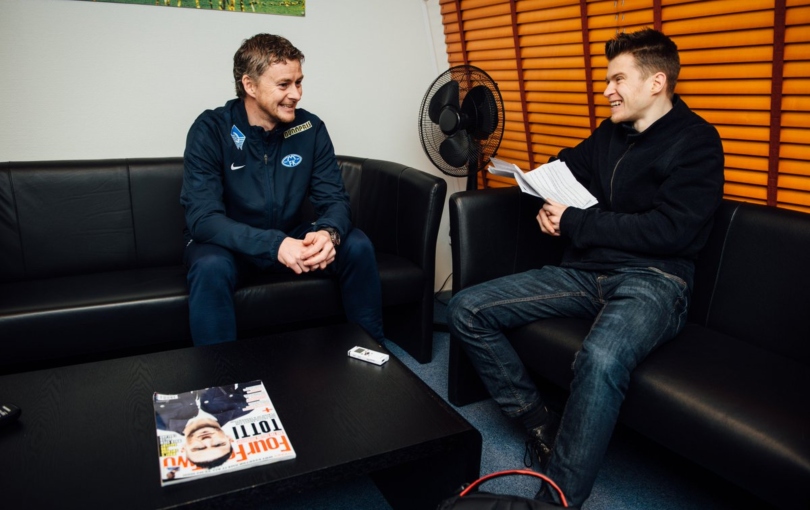
Ole’s important qualities
It's that ability to instantly build human relationships that has been key at Manchester United. Player-manager relations had been one of the problems during Jose Mourinho's latter days in charge, and Solskjaer fixed all of that straight away. Players liked him, and wanted to play for him – even the ones who weren't in the team regularly.
Get FourFourTwo Newsletter
The best features, fun and footballing quizzes, straight to your inbox every week.
"Ole has a quality that is really difficult to have in football," Ander Herrera told me when I met the midfielder for FFT recently. "He has the affection of all the players – the players who play and the ones who don't play as much." As a perennial substitute himself during his playing days, Solskjaer knew how to handle those players and any frustration they might have.
Like Gareth Southgate with England, another caretaker boss who became a surprise success and earned the job full time, Solskjaer knew some of the players he was inheriting from his days working with the younger age groups. In Southgate's case it was Harry Kane, Raheem Sterling et al, and he quickly got the best out of them at senior level. For Solskjaer, it was the same with Paul Pogba and Jesse Lingard. Even before he'd arrived as interim manager, the rapport was already there from his time as United's reserve team boss.
And yet when I visited Molde – just a few miles from Kristiansund, the town where Solskjaer grew up – it seemed improbable that he could go straight from there to managing Manchester United's first team. Molde is a beautiful place, but it's a sleepy town of 26,000 people in the west of Norway, with a tiny airport. It's a world away from Manchester, and a club the size of Manchester United.
But Solskjaer went straight from Molde to Manchester United as a player, and quickly became a success. He's done the same as a manager, partly because he's more suited to managing United than Cardiff, and partly because of the lessons he learned in south Wales. "I’d always been at Manchester United or Molde, dominating games and played attacking, entertaining football," he said of his time managing Cardiff. "My teams weren’t solid enough back then. I’ve learned a lot."
The baby face’s hard nose
Solskjaer can be hard-nosed when he wants to be, though. Think back to that cynical tackle on Rob Lee in the closing minutes against Newcastle at Old Trafford in 1998. Solskjaer's professional foul earned him a red card, as Lee raced through on goal, but it saved a point for his team. "When I came to the Premier League, I looked young, but I could still be a devil – if I had to hit a player’s ankle in a tackle, I hit his ankle," he told me.
As an interviewee, Solskjaer told funny stories but did so without ever rambling on at length. He spoke concisely, but every word was interesting and meaningful: perfect qualities for a manager. Their task is to get their message across – the attention span of a footballer can be short. It's something he learned from Sir Alex Ferguson. "Less was more for him," the Norwegian explained. "He never talked for hours, but whatever he said made a difference."
The warmth with which he spoke about Ferguson was telling. "He was an absolute treat," Solskjaer said, retaining the northern dialect he'd picked up in Manchester.
The United notebook
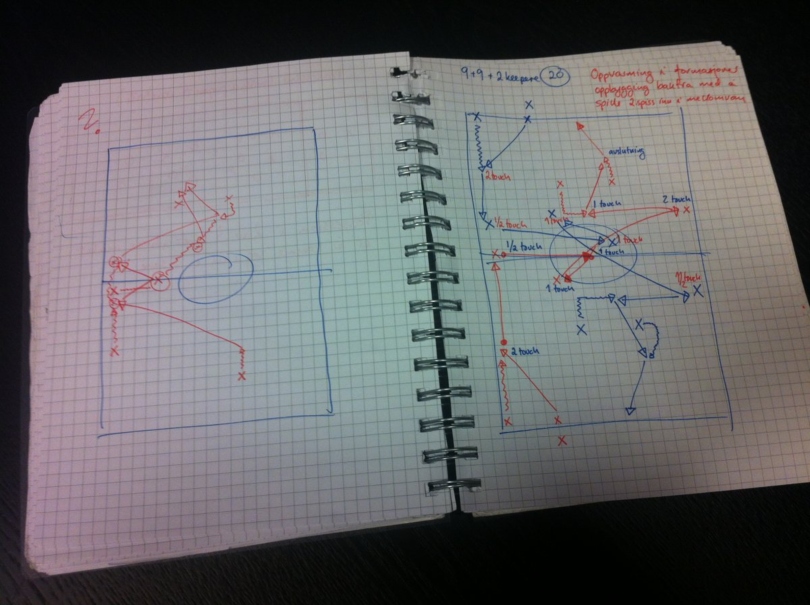
As we sat in his office, he showed me a book of scribbled notes he'd kept since the latter days of his time at United. "I realised I was experiencing something only my team-mates could experience, because Sir Alex was unique," he explained. "From 2000 onwards, I started to make notes of the sessions that we did – I’ve got all the diaries here with me at Molde."
Those diaries no doubt travelled with Solskjaer to Manchester when he was appointed interim boss in December. Back at Old Trafford, he's put into practice the lessons that he learned under Ferguson. As it turns out, they've worked pretty well.
"Is United still the dream job for me? Every Manchester United player who goes into management has that ultimate dream."
Ole, your dream has been realised. Such is his personality, there's not a person in football who will begrudge him this opportunity.
NOW READ…
BIG INTERVIEW Ole Gunnar Solskjaer – "At first I wasn’t mean enough. My teams weren’t solid – now I’ve learned a lot"
Subscribe to FourFourTwo today! 6 issues for £19

Chris joined FourFourTwo in 2015 and has reported from 20 countries, in places as varied as Jerusalem and the Arctic Circle. He's interviewed Pele, Zlatan and Santa Claus (it's a long story), as well as covering the World Cup, Euro 2020 and the Clasico. He previously spent 10 years as a newspaper journalist, and completed the 92 in 2017.
